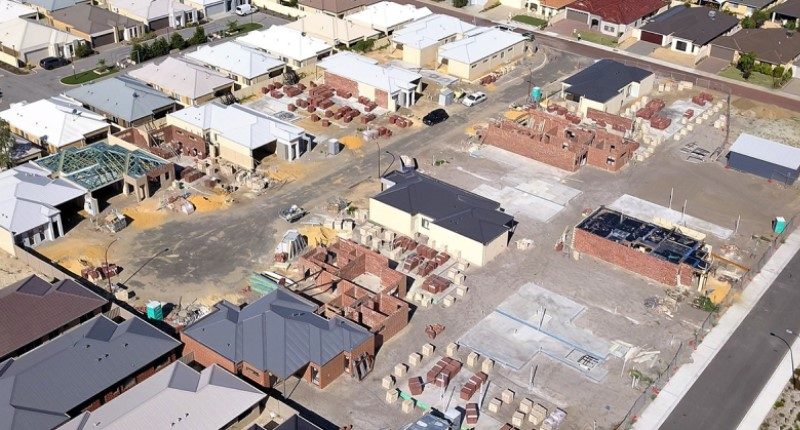- Australian Apartment Advocacy raised concerns about residents in Pindan-built properties
- CFMEU says the Government needs to do more to protect businesses
- Finance Minister says new legislation will be fast-tracked to shield subcontractors
The ongoing fallout from Pindan’s external administration continues, with an apartment advocacy group and trade union criticising the Western Australian Government for not doing enough to protect apartment owners and downstream businesses in the industry.
Sam Reece, the watchdog Australian Apartment Advocacy’s director, has slammed the McGowan Government for not ‘doing its due diligence’ and leaving thousands of apartment owners without protection against defects.
“While I understand that the Government is worried about the subbies, what about the residents who have paid upward of $500,000 for their home and are now faced with expensive defect bills to boot?” said Ms Reece.
“It is a well-known fact that a company is just as likely to go bust in a boom as with a downturn in the market, as they try and keep pace with the work and very small profit margins.”
“The State Government has set an infill target of 47% but without proper systems and procedures in place and as a result, have been caught with their pants around their ankles.”
Sam Reece, Australian Apartment Advocacy
Ms Reece and the apartment watchdog have recently reiterated calls for an Apartment Repatriation Fund to shield owners from structural defects not protected by current legislation.
She added the collapse of Pindan could affect consumer confidence in future off-the-plan developments.
“Our research shows that only 14% are prepared to buy off the plan, but with this kind of news, we will see a crisis in confidence and that is a crisis for the WA Government.”
Ms Reece said that the Queensland Building and Construction Commission undertakes financial inspections annually of registered builders to ensure they are in a position to meet financial obligations.
CFMEU labels collapse a ‘national disgrace’
The Construction, Forestry, Mining and Energy Union (CFMEU) – which had in recent weeks been slowly taking workers and equipment off Pindan sites – said Pindan’s administration has left workers, subcontractors and small businesses ‘carrying the can’.
“Pindan Group is the latest in a long line of companies that have gone to the wall owning workers millions,” said CFMEU National Construction Secretary, Dave Noonan.
“The Pindan collapse should come as no surprise to state and federal governments. The WA CFMEU has been warning that Pindan was one of the construction companies leading a race to the bottom in building and construction in the state.”
Dave Noonan, CFMEU National Construction Secretary
Mr Noonan has called for consistent laws that protect downstream businesses in the industry for an event such as this.
“The industry requires consistent national laws rather than piecemeal rules that savvy developers can drive a truck through, safe in the knowledge that they won’t be held to account.”
“Australia needs effective national security of payment laws and statutory trusts to ensure workers, subbies and downstream businesses are paid for the work they do.”
Yesterday, Finance Minister Tony Buti told reporters the State Government intends to fast-track legislation to protect subcontractors.
“Obviously that may not be much comfort to the subcontractors in regards to Pindan but it will, of course, be a comfort going forward and provide some confidence.”
Tony Buti, Finance Minister
The CFMEU has called for the state and federal governments to act upon the Murray Report which has 86 recommendations, that include a statutory trust to protect workers and subcontractors in the event of developers going bust.
“The subcontractors who do the bulk of the work and employ the majority of workers in construction are forced to underwrite the profits of big developers who refuse to pay fairly, on time or at all,” said Mr Noon.
“The collapse of Pindan could have a devastating impact on construction in WA as the non-payment of money owed to subcontractors ripples across the industry.”
“Until we have national security of payment laws in Australia we will continue to see workers and subcontractors hit hard by unscrupulous developers who know they will not be held to account for refusing to pay what they owe.”
Dave Noonan, CFMEU National Construction Secretary








